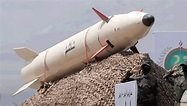Amid heightened conflict in the Middle East, the United States has initiated defensive airstrikes following the Houthis’ launch of anti-ship ballistic missiles. The developments underscore the volatile situation in the region and the ongoing challenges of maritime security in the strategic waterways.
The Houthi rebel group, aligned with Iran, has been engaged in a protracted conflict with the Yemeni government and its allies. The recent attacks involving anti-ship ballistic missiles represent a significant escalation, posing a direct threat to commercial shipping and naval vessels navigating the region’s waters.
The US military’s response with defensive airstrikes aimed at neutralizing the missile threats highlights the importance of maintaining stability and security in vital maritime routes, including the Bab el-Mandeb Strait and the Red Sea. These waterways are crucial for global trade, serving as major arteries for oil shipments and other essential goods.
The Houthis’ use of advanced weaponry, including ballistic missiles, underscores their growing capabilities and the challenges posed to regional security. The conflict in Yemen has already resulted in humanitarian crises, including widespread displacement, food insecurity, and civilian casualties, further complicating efforts to achieve lasting peace and stability.
The US decision to conduct defensive airstrikes reflects a broader strategy of safeguarding its interests and those of its allies in the region. With Iran’s support for the Houthi rebels and its broader influence in the Middle East, the situation remains highly complex and prone to further escalation if not effectively managed.
Moreover, the Houthis’ actions also raise concerns about the proliferation of advanced weapons in conflict zones and the potential for such arms to fall into the hands of non-state actors and terrorist groups. The international community must remain vigilant and proactive in addressing these challenges to prevent further destabilization and violence.
The defensive airstrikes conducted by the US serve as a warning to adversaries and a signal of its commitment to defending its interests and ensuring the safety of maritime navigation. However, they also highlight the delicate balance between deterrence and escalation, underscoring the need for diplomatic efforts to de-escalate tensions and find lasting solutions to regional conflicts.
In addition to military responses, efforts to address the root causes of conflicts, promote dialogue, and support diplomatic initiatives are essential in achieving sustainable peace and security in the Middle East. The involvement of regional actors, international organizations, and diplomatic channels is crucial in navigating complex geopolitical challenges and preventing further escalation.
Furthermore, the Houthis’ actions and the US response emphasize the interconnectedness of global security and the need for cooperation among nations to address shared threats effectively. Collaborative efforts in intelligence-sharing, counter-terrorism measures, and conflict resolution are essential in confronting common challenges and promoting stability worldwide.
Given the evolving dynamics in the Middle East, all involved parties must prioritize discussions, diplomatic efforts, and measures to reduce tensions, thus averting additional violence and insecurity. The recent defensive airstrikes by the US serve as a reminder of the complexities of modern conflict and the importance of strategic responses in safeguarding regional and global security.









